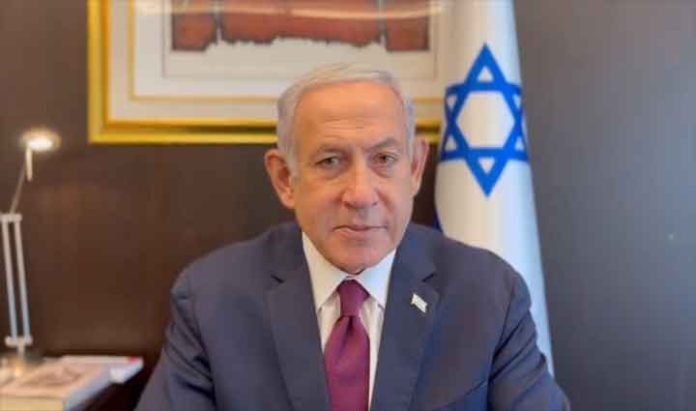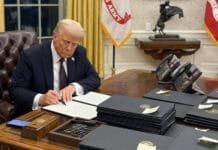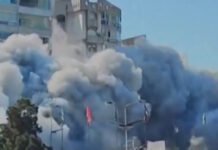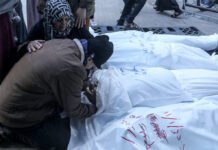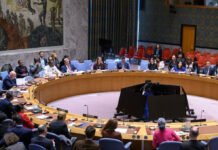INVC NEWS
Tel Aviv : Israeli Prime Minister Benjamin Netanyahu has firmly reiterated Israel’s stance on retaliating against Iranian missile attacks. Speaking from the military headquarters in Tel Aviv, Netanyahu emphasized that Israel will not tolerate such provocations and will respond with appropriate force. He made it clear that defending Israel’s citizens and cities from these attacks is not just a duty, but an inherent right.
The Missile Attacks and Israel’s Defense Response
The latest missile barrage, which occurred earlier this week, saw Iran launching nearly 200 ballistic missiles targeting Israel. Israeli defense forces were quick to respond, successfully neutralizing the majority of these missiles using the Iron Dome defense system. While some missiles did manage to penetrate the defense shield and cause damage to certain areas, Israel’s military insisted that critical infrastructure, including military airbases, remained largely unaffected.
Netanyahu stated, “No nation would accept its cities being targeted in such a manner, and neither will Israel. The safety of our people is non-negotiable, and our response will be firm.”
Iran, on the other hand, claimed that the attack caused substantial damage to Israeli assets, including several military airbases. An Iranian journalist went as far as to accuse Israel of hiding the true extent of the damage. Israel, however, has maintained that the attack did not result in any significant losses, neither in terms of aircraft nor crucial installations.
Netanyahu’s Vow: Defending Northern Israel
In his speech, Netanyahu addressed the concerns of residents in northern Israel, many of whom have been forced to evacuate their homes due to ongoing conflict. He made a public commitment to ensure the safety of these citizens and promised that they would soon be able to return home.
“Our commitment to the safety and well-being of the people in northern Israel is unwavering. Just as we did when we neutralized Hamas forces in Gaza, we will restore peace and security to the north,” said Netanyahu.
This statement comes as a reassurance to the public, especially considering the proximity of northern Israel to the Lebanon border, where Hezbollah, a proxy of Iran, has a strong presence. The northern region of Israel has seen increased tensions and sporadic rocket attacks in recent months, adding to the pressure on Israeli defense forces to secure the region.
Targeting Hezbollah’s Capabilities
Netanyahu also took the opportunity to highlight Israel’s recent military successes against Hezbollah, the Lebanon-based militant group backed by Iran. According to the Prime Minister, Israeli forces have managed to destroy a large portion of Hezbollah’s missile and rocket stockpiles. This includes underground tunnels, which the militant group has used to transport weapons and launch surprise attacks into Israeli territory.
“Our military operations in Lebanon have significantly weakened Hezbollah’s ability to launch attacks against us. We are dismantling their infrastructure and reducing their capacity to threaten Israel,” Netanyahu declared.
While the Israeli Defense Forces (IDF) have successfully dismantled many of these tunnels, Netanyahu admitted that the work is not yet complete, and Israeli soldiers remain vigilant in their efforts to neutralize the threat from Hezbollah.
French Criticism and Netanyahu’s Response
In an unexpected twist during his speech, Netanyahu took aim at French President Emmanuel Macron. The French leader had recently expressed his opposition to supplying weapons to Israel, a stance that has drawn criticism from the Israeli government.
Netanyahu did not mince words in his rebuke of Macron’s position, stating that “leaders should think carefully before making such declarations.” He went on to assert that whether or not Israel receives foreign weapons supplies, its victory over its enemies is inevitable.
The tension between Israel and Western European nations regarding arms supplies has been an ongoing issue. While many European leaders have voiced concern over the human toll of the conflict, Netanyahu’s government has remained resolute in its defense strategies, emphasizing that Israel’s right to defend itself is non-negotiable.
Iran’s Persistent Threat: Escalating Regional Instability
The exchange of missile fire between Iran and Israel represents a dangerous flashpoint in the Middle East. The Iranian regime has long been hostile toward Israel, and recent events show that this animosity is not waning. Tehran has continued to funnel resources and weapons to various militant groups throughout the region, most notably Hezbollah and Hamas.
The latest round of missile strikes from Iran is yet another indication of Tehran’s aggressive military posture, which aims to destabilize Israel and project power across the region. This comes in the wake of the Abraham Accords, which saw several Arab nations normalizing relations with Israel, a development that Iran has strongly opposed.
Iran’s influence extends beyond just its direct missile attacks. The country is heavily involved in proxy warfare, supplying weapons, intelligence, and funding to militant groups hostile to Israel. Netanyahu’s government has repeatedly warned the international community about the growing threat posed by Iran’s expansionist policies, particularly its nuclear ambitions and its support for terrorist organizations.
The Role of the International Community
The conflict between Israel and Iran has global implications. The international community is divided, with some nations supporting Israel’s right to self-defense, while others express concern over the potential for widespread violence in the region.
As tensions rise, countries like the United States have reaffirmed their support for Israel. Washington has condemned Iran’s missile strikes and provided intelligence and defense support to the Israeli military. At the same time, the U.S. government has also called for restraint, urging both parties to avoid a full-scale war that could engulf the Middle East.
Meanwhile, the United Nations and other global bodies have urged for diplomacy, calling on Iran to halt its aggressive actions and urging Israel to exercise caution in its military responses. However, the deep-rooted enmity between these two nations makes a diplomatic solution highly unlikely in the short term.

